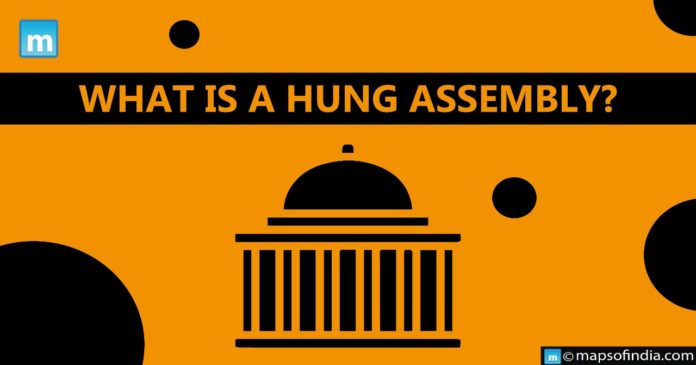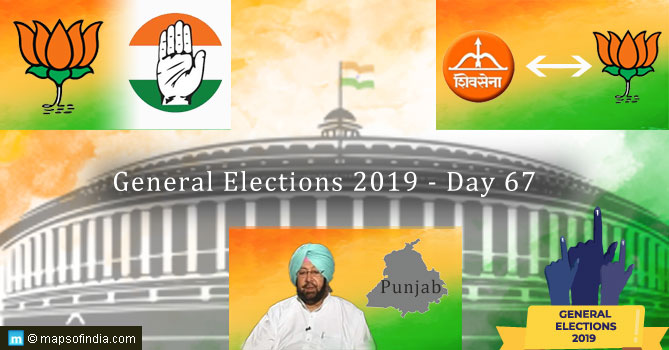The Origins
The term “Hung Parliament” finds its origins in the Westminster System of governance, first developed in England. It refers to a situation where no single political party or pre-existing coalition can gain an absolute majority of legislators in the Parliament or other legislatures. This situation is less commonly referred to as a “Balanced Parliament” in the British system of governance and is usually marked by the formation of a minority government.
In the Indian context, it simply means that no single party won enough seats to gain an absolute majority of 50% and form the government. This phenomenon is observed in Lok Sabha and not just state Assembly. A Hung Parliament is declared if no single party wins 272 out of 543 seats (excluding two seats for nominated members).
What happens in the case of a Hung Assembly?
In India, if a state legislative election results in a “Hung Assembly” and no party can gain confidence, then re-polling is announced and conducted as soon as possible. Until then President’s rule is applied. India has seen such hung assemblies numerous times, with at least three out of the five states this time also predicted to be hung.
However, the states don’t usually have to resort to fresh elections as the governor of the concerned state generally provides ample opportunities to the parties. From the one that won the most seats in the polls to exploring forming alliances with different parties to gain at least 50% of the total seats. If, however, no such agreement can be reached between parties, President’s rule gets imposed.
Advantage and Disadvantage
The significant advantage of a hung assembly in the state is that since the government is formed keeping in mind the interests of more than one political party, more people get the opportunity to be heard. Also, the government is usually more accountable as allies can take back support if their voices aren’t heard, thereby collapsing the government.
The major disadvantage is that decision-making can be excruciatingly slow and painful.





